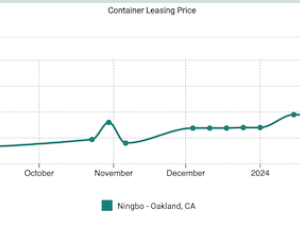"In the containerized shipping industry, e-commerce has matured to the point where it is now a vital part of a carrier's value-added services," said Mr. Huang Xiaowen, GM and Executive Director of CSCL. "GT Nexus has succeeded in delivering a proven solution that delivers value to all stakeholders. We are looking forward to working together with our customers as they continue to automate their global supply chains, and are pleased to now offer the GT Nexus Portal in addition to our existing in-house e-commerce solutions."
"We are very pleased and proud to welcome China Shipping to GT Nexus," said John Urban, GT Nexus president. "Customers want simpler, more automated solutions, delivered over the Web, for managing global transportation processes. Today's announcement adds more validity to our network strategy and the advantages it provides for both carriers and shippers."
GT Nexus and CSCL have worked together for several years as part of the strategic visibility initiatives that top importers, exporters and 3PLs have deployed on the portal. Now, users of GT Nexus will have the ability to submit bookings and shipping instructions electronically to CSCL, which effectively digitizes the entire shipper-carrier transactional process.
The GT Nexus trade and logistics portal combines two things -- strategic business applications and a network of carriers, 3PLs and suppliers. All services are delivered on-demand, over the Web, which allows customers to get up and running quickly and cost effectively. Carriers integrate to the GT Nexus portal once and then use that single standardized interface to exchange business information with thousands of global customers.
"Increasingly, customers are moving towards the on-demand delivery model," added Urban. "In this economy, they have to. The time-to-value, cost and risk benefits that come with on-demand, Web based technology is simply too compelling when compared to traditional software."





